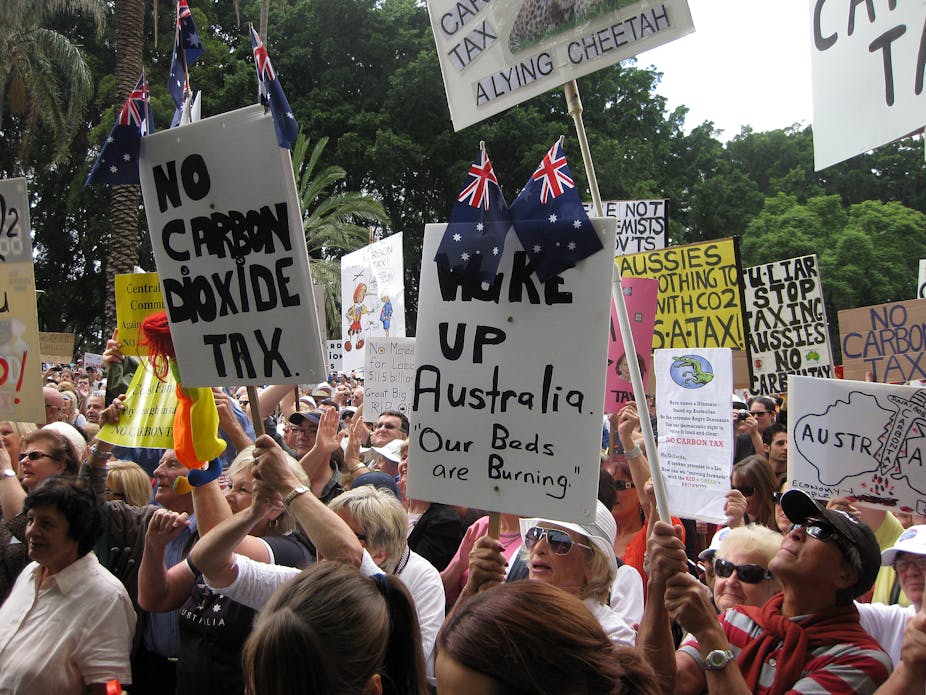Death threats against climate scientists may make researchers reluctant to engage in public debate or even turn research students off the study of climate change altogether, the head of the government agency that funds Australian research has warned.
The Canberra Times newspaper reported on Saturday that climate scientists from the Australian National University, the University of NSW, the University of Melbourne and other unnamed universities had been subjected to threats of violence, sexual assault or attacks on family members.
Some had upgraded security measures in their homes and workplaces after receiving abusive emails and death threats.
Professor Margaret Sheil, CEO of the Australian Research Council, said that the safety of the threatened researchers was the primary concern but warned of a possible chilling effect in the longer term.
“It may prevent or reduce the involvement of key scientists in the public debate to which they are making a vital contribution. In the longer term, it may affect the choices made by post-docs and research students in pursuing climate change science,” she said.
Climate researchers in the US and the UK have also been threatened, and Science magazine published an open letter in May last year signed by scores of scientists calling for an end to harrassment of climate scientists.
Professor Sheil said she did not expect academic freedom to be impinged by employers because most Vice Chancellors and Chief Executives would be supporting their academics in the face of such threats.
“I think it’s important that the leaders of the institutions come out, as they are doing, in public support of their scientists working in the area of climate change and more generally in defence of science and the processes of peer review and scrutiny that underpin the integrity of science,” she said, adding that she had also been harassed over her public support of climate science research.
“I received a barrage of emails from those who promoting the opposite view,” she said.
Deputy Vice Chancellor (Research) at UNSW, Professor Les Field, described the threats against scientists as “an absolute travesty” and called for academics to be allowed to present their data for debate in an open, constructive and professional fashion.
“The issue of climate science has become an emotive issue that has become entangled and confused with politics and with vested interests. I think that the science itself should be judged and debated on its merits and this must be decoupled from politics,” said Prof Field, whose university employs one of the scientists who had recently been threatened, UNSW’s Andy Pitman.
“Climate change has become an emotionally engaging issue. Firstly, it predicts changes for future generations and we all prick up our ears when there is concern for the well-being of our children and grandchildren. Secondly, climate change has been used as a justification for proposed new taxes to drive cleaner and greener industry, proposed lifestyle changes and significant changes to our industries and manufacturing practices,” he said, adding that such issues and their likely impact on the climate were worthy of public debate.
“The practice of intimidation, bullying and threats simply shouldn’t be tolerated. To the extent that this is illegal, it should be dealt with by the force of the law,” he said.
“We must stand up for the right of every researcher to put forward his or her views and have them debated, criticised and discussed in a public and professional forum.”
Dr Kevin Trenberth, head of analysis at the National Center for Atmospheric Research (NCAR) in Colorado, received around 19 pages of abusive emails in the months following the publication of e-mails leaked from a top global climate research body in late 2009, an event that came to be known as Climategate.
Dr Trenberth said the abusive emails have continued to flow in.
“They occur episodically evidently in response to something highlighted on denier websites such as (the website run by climate change skeptic Marc Morano) or Watts Up with That.”
“The peak occurred after Climategate and through the Copenhagen meeting. The second peak occurred late 2010 into 2011 when I gave a paper at the American Meteorological Society meeting in January,” he said. “After it was posted, it was picked up on those sites and got a lot of attention.”
The abusive emails urge him to go back to New Zealand or describe efforts to ensure he does not receive any more research funding.
“Most are nonsensical: just sounding off. There is no attempt to really engage. They do not want you to answer questions or provide a rationale for anything. It is mindless. A few times I did try to engage by answering questions and a small subset of those were actually rational but most were not: true deniers,” he said.
“These are nearly all emails. However after Climategate in late 2009, there were protesters who tried to get onto NCAR property,” he said. “Security at NCAR was heightened for quite a while.”
Some of the abusive correspondence has religious overtones, said Dr Trenberth.
“Some has a values base that seems to relate to implications that something will have to be done by governments and there is a mindless opposition to government and also any implied international ‘interference’.”
Universities Australia Chair and Vice Chancellor of the University of Melbourne, Professor Glyn Davis AC, described the threats to climate scientists as “a fundamental attack upon intellectual inquiry”.
“To disagree with evidence or conclusions from academic research is part of any robust debate. To seek to intimidate scientists who reach unwelcome findings is an assault on the ideal of a free exchange of ideas. It undermines our democratic society,” he said.
“Serious public policy debate needs civil and informed discussion. Aggressive abuse and hate campaigns make no helpful contribution to a crucial policy debate. They simply seek to silence unwelcome voices,” he said.
“Fortunately, academics at Australian universities continue to refuse to be intimidated by the few who grasp neither the principles of academic freedom nor the urgent imperative of independent research.”

